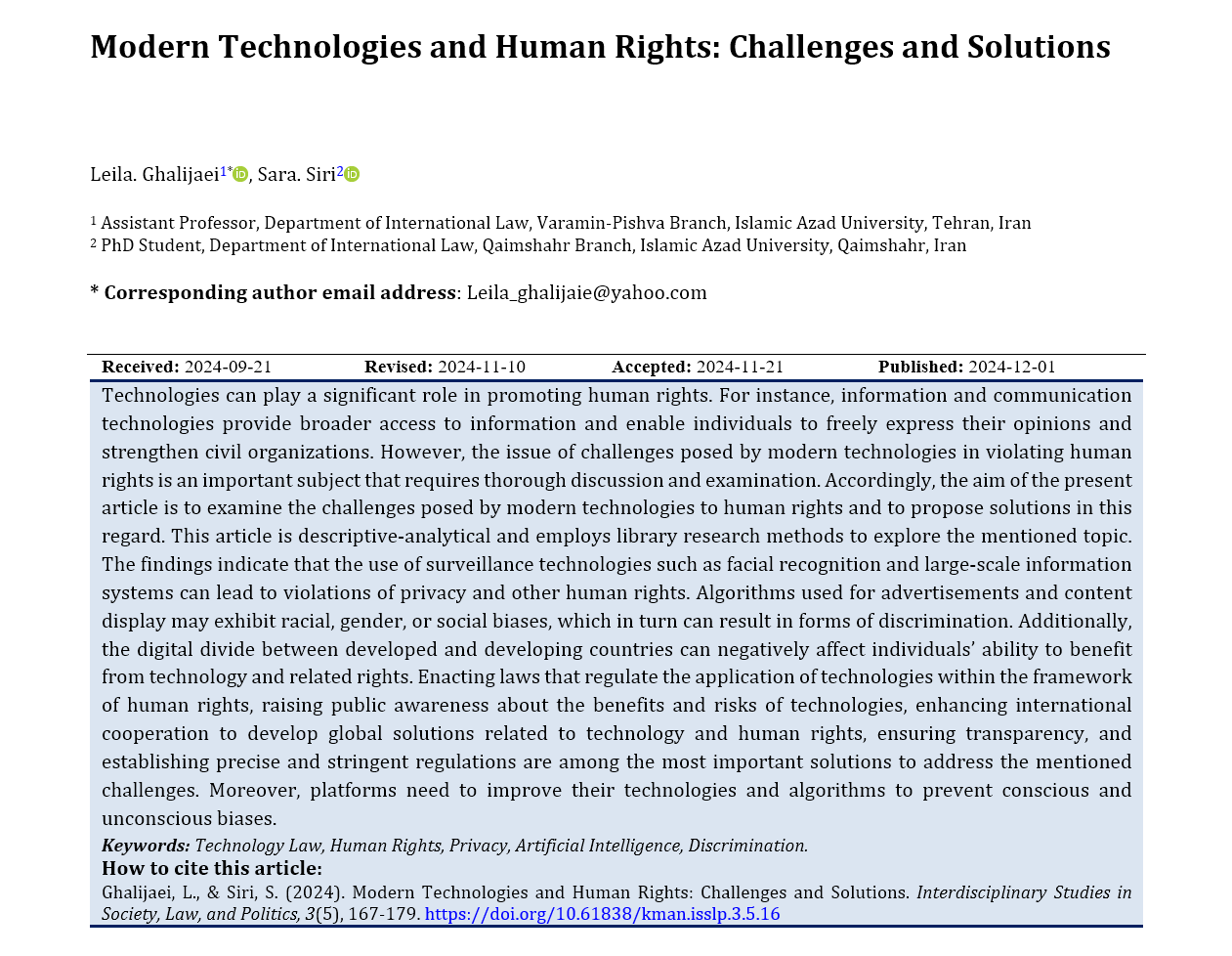Modern Technologies and Human Rights: Challenges and Solutions
Keywords:
technology rights, human rights, privacy, artificial intelligence, discriminationAbstract
Technologies can play a significant role in promoting human rights. For instance, information and communication technologies provide broader access to information and enable individuals to freely express their opinions and strengthen civil organizations. However, the issue of challenges posed by modern technologies in violating human rights is an important subject that requires thorough discussion and examination. Accordingly, the aim of the present article is to examine the challenges posed by modern technologies to human rights and to propose solutions in this regard. This article is descriptive-analytical and employs library research methods to explore the mentioned topic. The findings indicate that the use of surveillance technologies such as facial recognition and large-scale information systems can lead to violations of privacy and other human rights. Algorithms used for advertisements and content display may exhibit racial, gender, or social biases, which in turn can result in forms of discrimination. Additionally, the digital divide between developed and developing countries can negatively affect individuals’ ability to benefit from technology and related rights. Enacting laws that regulate the application of technologies within the framework of human rights, raising public awareness about the benefits and risks of technologies, enhancing international cooperation to develop global solutions related to technology and human rights, ensuring transparency, and establishing precise and stringent regulations are among the most important solutions to address the mentioned challenges. Moreover, platforms need to improve their technologies and algorithms to prevent conscious and unconscious biases.
Downloads






